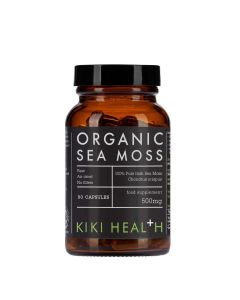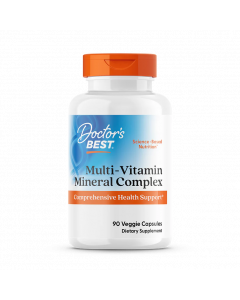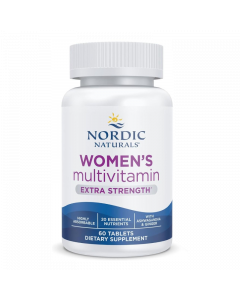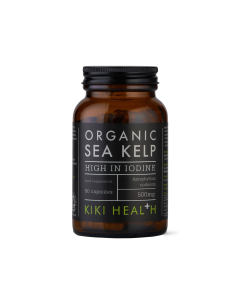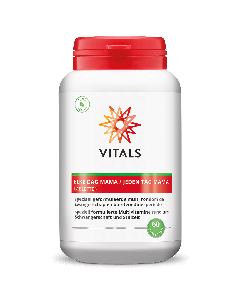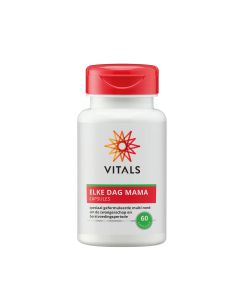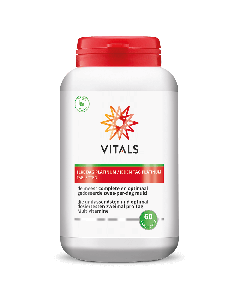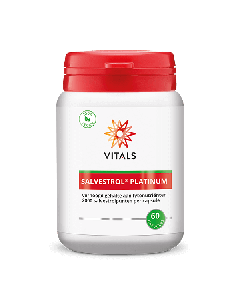- Shipped today!
- Free shipping from € 45
- Postpay possibility
- Review score 9.4
- Earn reward points
- Shipped today!
- Free shipping from € 45
- Postpay possibility
- Review score 9.4
- Earn reward points
- Home
- Vitamins & Supplements
- Minerals
- Iodine

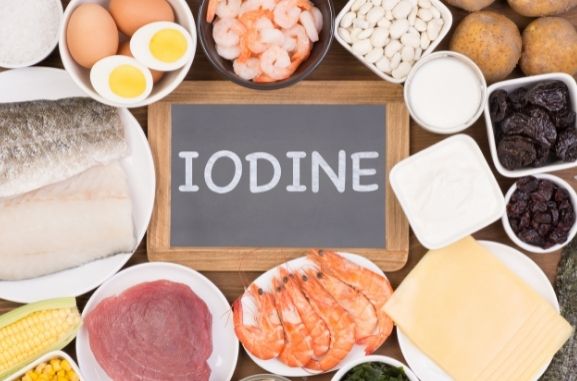
What is Iodine?
Iodine is an essential trace mineral, well known for normal thyroid and cardiovascular function. Hormones produced by the thyroid gland help regulate the body’s metabolism. Proper bone and brain development during pregnancy also relies on these hormones.
Iodine is naturally found in foods such as fish, seafood, dairy products, fortified grains and iodized salt. It is not a common supplement due to universally fortified table salt. Despite most first world countries being sufficient in iodine, supplementation may be of benefit to those who do not consume any seafood, dairy products or have minimal dietary intake.
Interestingly seaweed is a significantly better source than fish (Source: NCBI). Although some seaweed products are so high that they are considered excessive and may put one above the tolerable upper limit (600 μg) of iodine. The recommended intake for adults is 150 μg/day. See below for groups that should consider supplementation.
Key aspects of Iodine
If you are following a strict vegan/plant-based diet and do not consume any fish then you may want to consider taking an iodine supplement. Some types of plant-based milk are also fortified with iodine, so be aware of this. If you are considering taking a supplement seek advice from a healthcare professional prior to supplementation.
Who might benefit from Iodine supplementation?
Most people get enough iodine from foods and beverages. However, certain groups of people are more likely than others to have trouble getting sufficient iodine from the diet and may benefit from supplementation:
- People who do not use iodized salt. Adding iodine to salt is the most widely used strategy to control iodine deficiency (Source: OD).
- Pregnant women. Women who are pregnant need about 50% more iodine than other women to provide enough iodine for their baby (Source: NCBI).
- People living in regions with iodine-deficient soils who eat mostly local foods. These soils produce crops that have low iodine levels (Source: NCBI).
- People who get marginal amounts of iodine and who also eat large amounts of food containing goitrogens. Goitrogens can be thought of as various substances that interfere with the way the body uses iodine. They are present in some plant foods including soy, and cruciferous vegetables such as cabbage, broccoli, cauliflower and brussels sprouts. Eating reasonable amounts of foods containing goitrogens is not a concern (Source: OD & OD).
How do I know if I am deficient?
Iodine deficiency is uncommon in most developed countries. Individuals with insufficient iodine cannot make sufficient amounts of thyroid hormone. As a result, this can cause many problems.
- In pregnant women, severe iodine deficiency can permanently harm the fetus by causing stunted growth, intellectual disability, and delayed sexual development.
- Less severe iodine deficiency can cause lower-than-average IQ in infants and children and decrease adults’ ability to work and think clearly.
- Goiter, an enlarged thyroid gland, is often the first visible sign of iodine deficiency (Source: NCBI).

